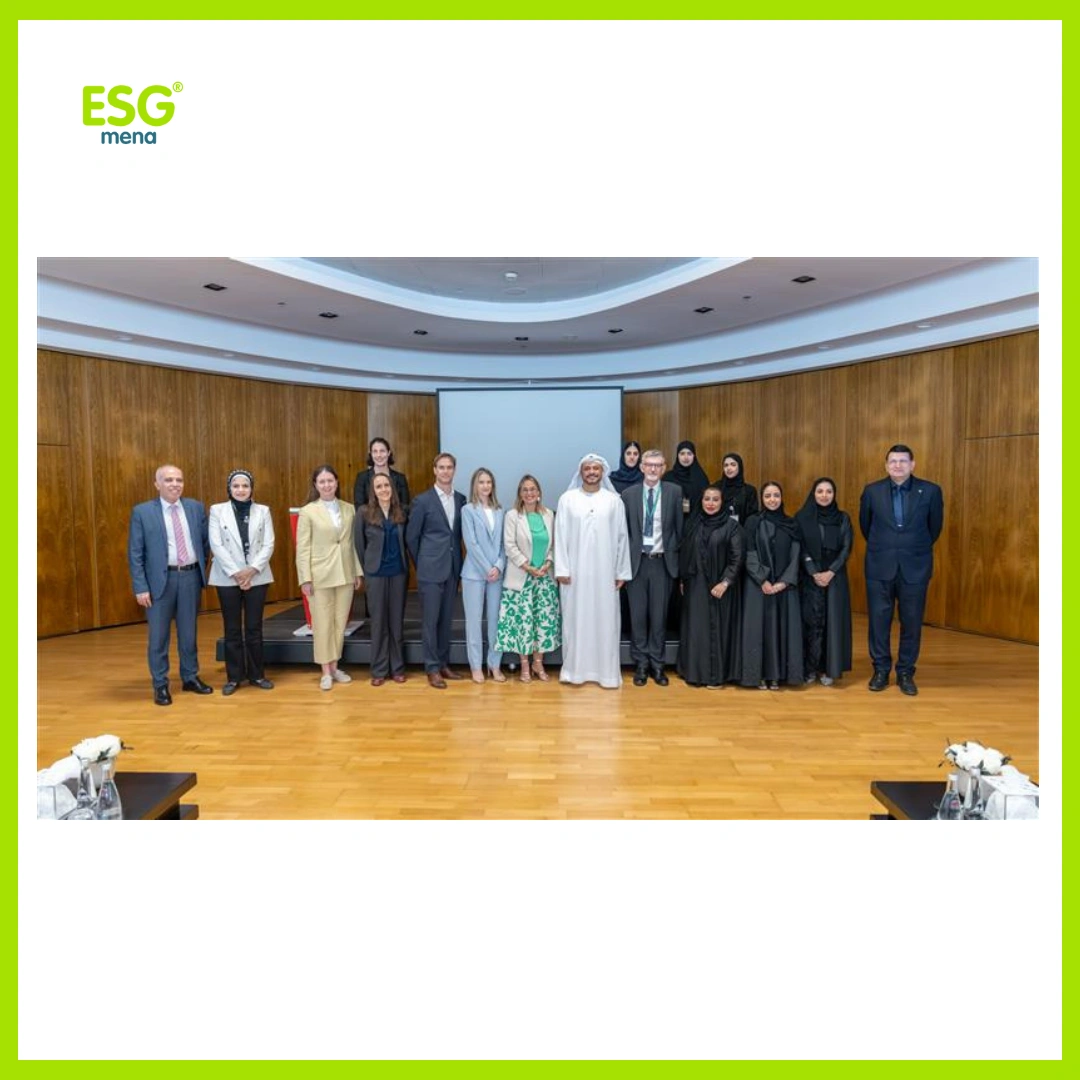The Environment Agency – Abu Dhabi (EAD) has announced the results of its research collaboration with Sorbonne University Abu Dhabi, which examined residents’ behaviour in managing household waste. This partnership forms a key component of the forthcoming launch of a transformative, behavioural nudging campaign designed to reshape waste management across the emirate of Abu Dhabi.
The event celebrated the culmination of the first of a two-phase programme aimed at achieving two critical environmental objectives: reducing household waste generation and increasing recycling rate by residential households. The campaign draws on deep scientific insights generated from a rigorous research project: “Sociological Insights on Household Waste in Abu Dhabi: Shaping Effective Behavioural Nudges.” The research was a collaborative effort between expert teams from EAD and Sorbonne University Abu Dhabi.
The research process included a comprehensive global review of successful waste management strategies and the execution of a wide-reaching sociological study. More than 1,000 residents from diverse demographics were surveyed across all three regions of Abu Dhabi. This was further enriched by qualitative research involving focus groups comprising 59 participants from 20 nationalities, including domestic workers, women and environmental advocates. The study also resulted in the development of a comprehensive interactive map of 1,500 recycling and donation sites across the emirate, categorised by 10 waste types.
Ahmed Baharoon, Executive Director of Environmental Information, Science and Outreach at EAD, spoke about the significance of the campaign, stating: “The research collaboration between the Environment Agency – Abu Dhabi (EAD) and Sorbonne University Abu Dhabi (SUAE) represents a pivotal step towards strengthening the emirate’s position in waste management and sustainability. As a member of the Abu Dhabi Environmental Research Network (ADERN), Sorbonne University Abu Dhabi conducted an in-depth study to understand community behaviours related to household waste management. This research, based on scientific and logical analysis, aims to support the government’s vision and aspirations to engage all segments of society.
Baharoon added: “Relying on data and scientific foundations will ensure that the second edition of the ‘Together Towards Zero’ campaign is designed in line with local culture, enabling EAD to take concrete and effective measures, thus achieving a sustainable impact on waste management in the emirate.”
Key findings revealed high levels of environmental awareness, with 64 per cent of respondents having taken recent steps to reduce their ecological impact in the past year – chief among them, plastic reduction and waste sorting. Notably, women and long-term residents emerged as the most engaged demographics. In addition, almost 50 per cent of residents are recycling at least one material – predominantly plastic, paper and clothes.
The research also identified practical motivators such as health benefits, ease of accessibility, and underscored public support for government directives in waste reduction efforts. It also identified an ‘attitude-behaviour gap’, where 80 per cent of consumers expressed a willingness to adopt sustainable lifestyles, but could perhaps take a slightly more proactive approach.
A portion of the respondents said that more information on how and where to recycle, as well as on the waste process after collection, would be beneficial in effecting further positive change. The study also highlighted that community initiatives and engagement at the neighbourhood level hold strong potential for improving current practices.
Professor Nathalie Martial-Braz, Chancellor of Sorbonne University Abu Dhabi, said: “At Sorbonne University Abu Dhabi, we believe that the humanities and social sciences are essential drivers of societal progress and sustainable development. Our collaboration with the Environment Agency – Abu Dhabi is a powerful example of how academic research can inform policymaking that directly benefit residents and enhance their quality of life. Grounded in our expertise in human behaviour, we are committed to understanding how people live, act, and make decisions. These insights are essential to building more responsible, engaged, and sustainable communities. In the Year of Community, this project directly supports the UAE’s sustainability goals by translating behavioural research into strategies that inspire collective responsibility and nurture a culture of conscientious citizenship.”
In response to these findings, EAD is now preparing to launch a comprehensive behavioural nudging campaign under the umbrella of its digital sustainability platform, ‘Naha’. The campaign will support the wider “Mission to Zero 2.0” initiative. Its goals include reducing municipal solid waste to 1kg per person per day and increasing the recycling rate of non-hazardous waste to 40 per cent by 2041.
The upcoming campaign is anchored in a set of core principles, foremost among them the integration of behavioural science into effective policy engagement. It delivers a powerful and urgent call to action, emphasising the need for immediate and meaningful environmental change. By weaving positive environmental behaviours into both public policy and grassroots initiatives, the campaign fosters broad-based collaboration across sectors and actively engages the wider community. It aims to establish new standards for environmental responsibility, inspiring a lasting culture of sustainability that serves both current needs and the well-being of future generations.




